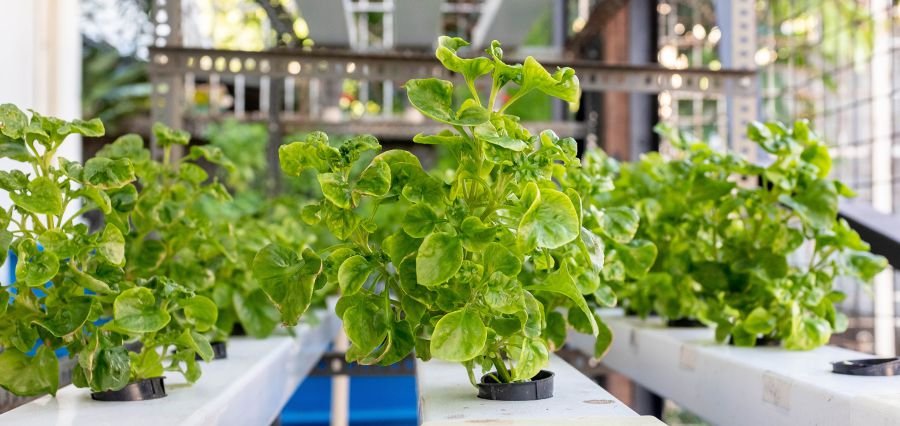Prime Highlights
- A hydroponic farm in Madinah has produced over 2 million kilograms of crops, setting a benchmark for sustainable farming in Saudi Arabia.
- The project aligns with Saudi Arabia’s National Water Strategy 2030, promoting food security and environmental sustainability.
Key Highlights
- The farm covers 183,000 sq. meters with 20 air-conditioned halls, cultivating lettuce, celery, rosemary, wild thyme, and basil.
- The hydroponic system reduces fertilizer use by up to 60% and water consumption by up to 90% compared to traditional farming.
Key Background:
A Hydroponic farm in Madinah has broken the record of producing more than 2 million kilograms of harvests, making it a leading role in sustainable farming in the Kingdom.
According to the Saudi Press Agency, the facility occupies an area of 183,000 square meters and is made of 20 air-conditioned Agricultural halls where the company grows lettuce, Celery, Rosemary, wild thyme, and Basil.
The hydroponic system in the farm presents significant benefits in terms of the environment and economy. Compared to conventional farming, reducing fertilizer use by up to 60 percent cuts water consumption by as much as 90 percent. This is a part of sustainable practice that meets the Saudi Arabian National Water Strategy 2030 and other initiatives to enhance environmental contributions.
The Ministry of Environment, Water, and Agriculture in Madinah stated that advanced technologies of agriculture are playing a vital role in enhancing productivity, maintaining food security, and reinforcing the National Agricultural Strategy.
He also noted that the government is extending strong support to farmers through support programs and development initiatives designed to enhance the quality and global competitiveness of Saudi agricultural products.
Read Also: Chikungunya Outbreak in China Sparks UAE Travel Alert for Asia-bound Flyers





